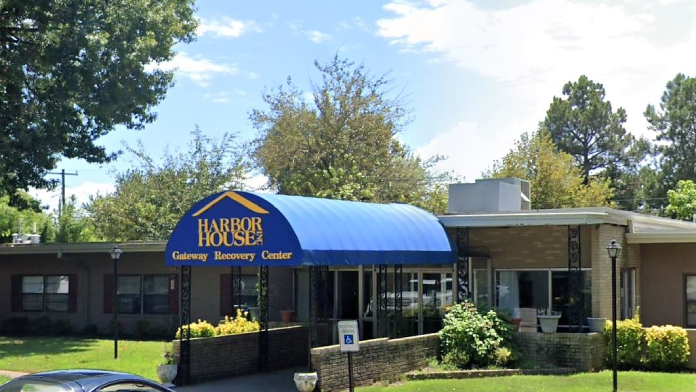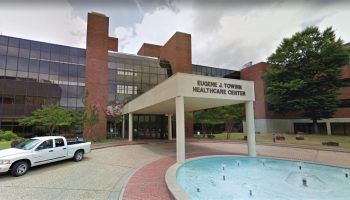About Gateway House Recovery Center Womens Residential
Gateway Recovery Center is a women’s residential treatment program. You’ll find ’em located in a semi rural part of Fort Smith, Arkansas. All women, including those pregnant and have young kids, can benefit. You can receive care for substance misuse and any co-occurring disorders.
Their residential program is part of their network. If you need any specialized services, they can refer you to other centers. They have a transitional living campus that offers additional support for up to 18 months. Or, their residential campus right outside Hot Springs National Park offers relief from fast-paced urban living, and you can relax in the surrounding natural splendor.
What stands out most to me is their home-like community. You’ll live among other women on similar paths. They provide single, double, and triple occupancy rooms so you can feel most comfortable. You can also enjoy a lounge area with televisions and a study. I think it’s great that they offer a safe space to focus solely on rebuilding your life with support from staff and peers. You’ll have ample space and time for fellowship with your peers.
Another notable feature I noticed was their treatment approaches. Along with 12-Step groups, you can access advanced proven and experiential therapies. Motivational enhancement therapy, cognitive behavioral therapy (CBT), eye movement desensitization and reprocessing (EDMR), mindfulness, and hypnotherapy are available.
I also think their Specialized Women’s Services Program is effective. This track lasts 60-75 days and offers targeted care for pregnant women and women with children aged six and younger. They provide a stable environment to focus on recovery while fostering essential parenting skills. You’ll also benefit from assistance with housing, employment, healthcare, education, job skill development, and aftercare. Your kids will have access to playpens and have opportunities to become friends.
Finally, they have several community outreach programs. They offer prevention classes and workshops for locals. That way, you can partake and start reintegrating yourself back into your community. Plus, it makes a difference in keeping your loved ones safe and aware of the dangers of addictions.
Many previous clients enjoyed their services. Some benefits mentioned were an amazing staff, a welcoming environment, and great peer connections. One client felt their services weren’t appropriate for those voluntarily seeking treatment. Still, be sure to research and consider multiple treatment centers to find the best fit for you.
Levels of Care
-
Inpatient
Inpatient and residential programs provide round-the-clock medical and emotional support as you live at the treatment facility. This level of care may be recommended if you have severe addictions or mental health conditions since it removes outside distractions and allows you to focus solely on therapy.
-
Outpatient
In outpatient therapy, you’ll attend therapy sessions several times each week while living at home. This is ideal if you have a strong support system and a lower risk of relapse. Outpatient treatment offers flexibility to maintain work, school or family obligations.
-
Dual Diagnosis
Dual diagnosis programs address substance use disorders and co-occurring mental health conditions simultaneously. This integrated approach to care improves the likelihood of long term recovery and stability by addressing the root causes of addiction.
-
Sober Living
Sober living homes provide a supportive and substance free environment for you to live in as you overcome your addiction. Residents must follow house rules and support each other's recovery journeys. Sober living fosters accountability and stability during this critical phase of recovery.
Detox Service Setting
-
Inpatient Detox
Inpatient detox occurs in a dedicated treatment facility. You’ll live there around the clock and receive intensive medical support and supervision to help manage your withdrawal symptoms. It is suitable for individuals with moderate to severe addictions as it ensures a stable detox environment.
-
Outpatient Detox
Outpatient detox gives you access to medically supervised withdrawal services while still allowing you to live at home. You’ll attend a clinic for treatment and monitoring. This flexible option is suitable for those with mild to moderate withdrawal symptoms who have strong support systems.
Programs
-
Adult (18+)
Adult programs address the substance use and life challenges specific to adults. Therapists can deliver sessions in individual, group and family settings. Services often include job support and life skills training in a structured environment.
-
Alcohol Detox
Alcohol detox programs offer medical support to help individuals withdraw safely from alcohol. Your care team may use medications to ease your symptoms and provide medical monitoring to address complications.
-
Cognitive Behavioral Therapy
Cognitive behavioral therapy focuses on changing harmful thought patterns and behaviors associated with addiction. You’ll learn healthier coping mechanisms by identifying and replacing negative thoughts. This improves your emotional resilience and decreases your relapse potential.
-
Drug Detox
Drug detox programs support individuals who are withdrawing from addictive substances like cocaine and heroin. Medical support helps you manage symptoms in a controlled and safe environment so you can achieve initial sobriety.
-
EMDR Therapy
EMDR stands for eye movement desensitization and reprocessing therapy. It helps you process traumatic memories that may underlie addiction. You’ll learn how to reduce emotional distress and begin healing from past events. This makes it effective for trauma related addiction causes.
-
Opioid Detox
Opioid detox uses medications to ease severe withdrawal symptoms. It also includes medical supervision to help you manage potential complications. These services allow you to stabilize and begin a recovery plan.
-
Women
Women's programs offer a safe and supportive space to focus on gender specific issues such as trauma, family roles and mental health conditions. Therapists tailor the sessions to address women's needs and foster empowerment in a healing and nurturing environment.
-
Young Adult (18 - 25)
Young adult programs are designed for individuals who are transitioning into adulthood. Topics of discussion typically include identity, independence and peer relationships. Providers may also offer life skills training and career support.
Payment Options
- Payment Assistance
- Medicaid
- Private Insurance
- Self Pay
Accreditations
-
 CARF
CARF
Contact
3900 North Armour Street
Fort Smith, AR 72904





